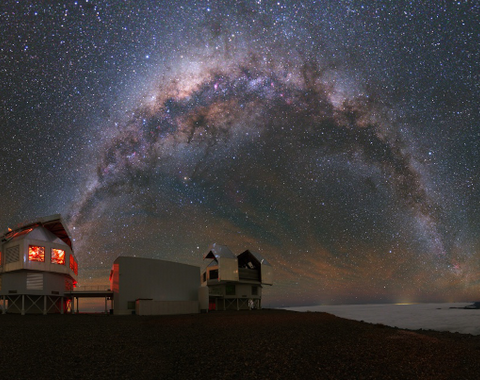2013 Astronomy Lecture Series

Each year the Observatories organizes a series of public lectures on current astronomical topics. These lectures are given by astronomers from the Carnegie Observatories as well as other research institutions. The lectures are geared to the general public and are free.
2013 Season
April 8, April 22, May 6 and May 20th.
All four lectures this year will be held in Ballroom F at the Pasadena Convention Center located at 300 E. Green Street, Pasadena, CA 91101. On site parking is available for a fee of $10. Limited street parking is also available. Visit www.pasadenacenter.com for directions and more information. All lectures are free and open to the public, but seating is limited. Please arrive early. Doors open at 7:00 PM and all lectures start at 7:30 PM. Light refreshments will be served in advance of the lectures.
For more information about the Carnegie Observatories or this lecture series, please contact John Mulchaey.
Schedule
Dr. Mansi M. Kasliwal
Carnegie-Princeton/Hubble Fellow,
Carnegie Observatories
Our dynamic Universe is adorned by cosmic fireworks: energetic and ephemeral beacons of light that are a million (nova) to a billion (supernova) times brighter than our sun. Just recently, we have discovered elusive explosions in the gap between novae and supernovae. Come hear about merging white dwarfs, binary neutron stars and the birth of black holes.
Watch recordingDr.Scott Sheppard
Staff Astronomer,
Department of Terrestrial Magnetism
Thousands of objects have recently been discovered in the distant solar system that have a similar origin as Pluto. Strangely, there is an edge just beyond Pluto’s orbit where objects don’t seem to exist. We will explore what this tells us about the formation and evolution of our Solar System.
Dr. Jeff Rich
Postdoctoral Associate,
Carnegie Observatories
The star stuff we are made of has an interesting history. Astronomy has contributed to fundamental knowledge about the elements that make up our everyday life while using the same elements to understand the properties of the cosmos. This talk discusses the connection between the elements and Astronomy past, present and future.
Dr. Ian Roederer
Carnegie Fellow,
Carnegie Observatories
The course of human history may have unfolded quite differently if not for a small impurity in one of the rarest elements on Earth. Dr. Roederer will revisit the story of how stardust from ancient supernovae became the key ingredient in the nuclear arms race.
Watch recording